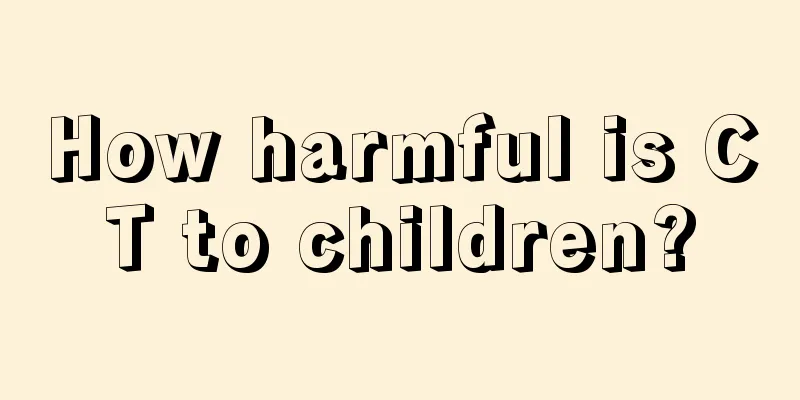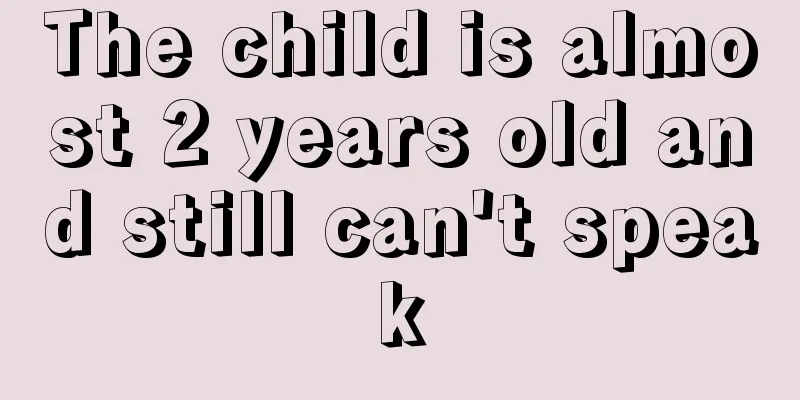Why do babies have fever due to bacteria?

|
Children generally have a poor physique and are very susceptible to bacterial infections, leading to various diseases such as colds, fevers, etc. This is also a concern for many parents. Repeated bacterial infections and the baby's illness has not improved, so what should we do? Today, the editor will talk to parents about what we should do when the baby has a fever caused by bacterial infection. The most common cause of fever in children in summer is upper respiratory tract infection, which usually presents symptoms such as sneezing, chills, coughing, and headache. If the fever is not high, below 39 degrees Celsius, it can be dealt with at home. Let your child get more sleep, drink more water, take some cold medicine, and he will be fine after a few days of rest. Don't be too nervous. If a child has a high fever above 39 degrees Celsius, pneumonia should be suspected. If the child has a severe cough and persistent high fever, and in severe cases, convulsions may occur, the child should be sent to the hospital for treatment immediately. Many people think that pneumonia is caused by fever. This view is incorrect and the cause and effect are reversed. The most worthy of attention is the fever caused by bacterial dysentery. The fever is very high. Once coma occurs, it may be a manifestation of bacteriotoxicity. The patient should be sent to the hospital for emergency treatment in time, otherwise his life will be in danger. If the baby has a fever of about 38 degrees, physical cooling is recommended (such as 1. Keep the room temperature at 21℃~23℃; 2. Let the child rest in bed, open the blanket or take off excess clothes; 3. Feed the child with cold boiled water or cold drinks frequently, 250 ml a night. 4. Apply an ice pack to the forehead. 5. For high fever, you can wipe the baby's joints with alcohol, take a warm bath, and soak the child in warm water 4℃~6℃ lower than body temperature for 5~10 minutes, then wipe the whole body dry with a large towel and gently massage the skin until it turns red; you can also use warm water at 32℃~34℃. Bacteria are everywhere, so parents must pay more attention, maintain personal hygiene in daily life, and do not let their babies come into contact with dirty things. If you find that your baby has a fever, do not force the fever down by yourself. Go to the hospital for treatment as soon as possible to avoid delaying the best treatment time. By taking more precautions in daily life, your health can be guaranteed. |
<<: Why do babies get paronychia?
>>: What should I do if my one-year-old child has a fever and convulsions?
Recommend
Why do children have congenital heart disease?
Every child is a gift from God to his mother and ...
How to supplement zinc deficiency in nine-month-old babies
Children will be weaned at eight months old. Befo...
What to do if your child has fungal infection
Fungal infection is a relatively common disease, ...
What to do if your child has weak eyes
When you find that your child has amblyopia, you ...
What are the causes and treatments for four-year-old children grinding their teeth while sleeping?
We often find children snoring after they fall as...
What should I do if my child has a mild concussion?
Babies cannot talk, walk or express themselves ye...
What to do if your newborn doesn't urinate
Urination is a common reaction in people's da...
What to do if a newborn has mild cerebral hypoxia
We know how important oxygen is to us. If we are ...
8 ways to praise your children to make them smarter
1. More specific praise Think carefully about wha...
What is the best way to treat cough and asthma in children?
Asthma is a respiratory disease. I wonder if you ...
Can a newborn baby have nipples squeezed?
Many families have the habit of squeezing the nip...
What's wrong with the little girl's vaginal discharge with blood?
When girls reach the age of thirteen or fourteen,...
Two-year-old baby always falls when walking
As babies grow up, they will continue to learn an...
How to prevent children from catching colds
For adults, colds are not a very serious disease,...
What is the cause of the baby's bloody stool?
When babies are young, they are prone to various ...









